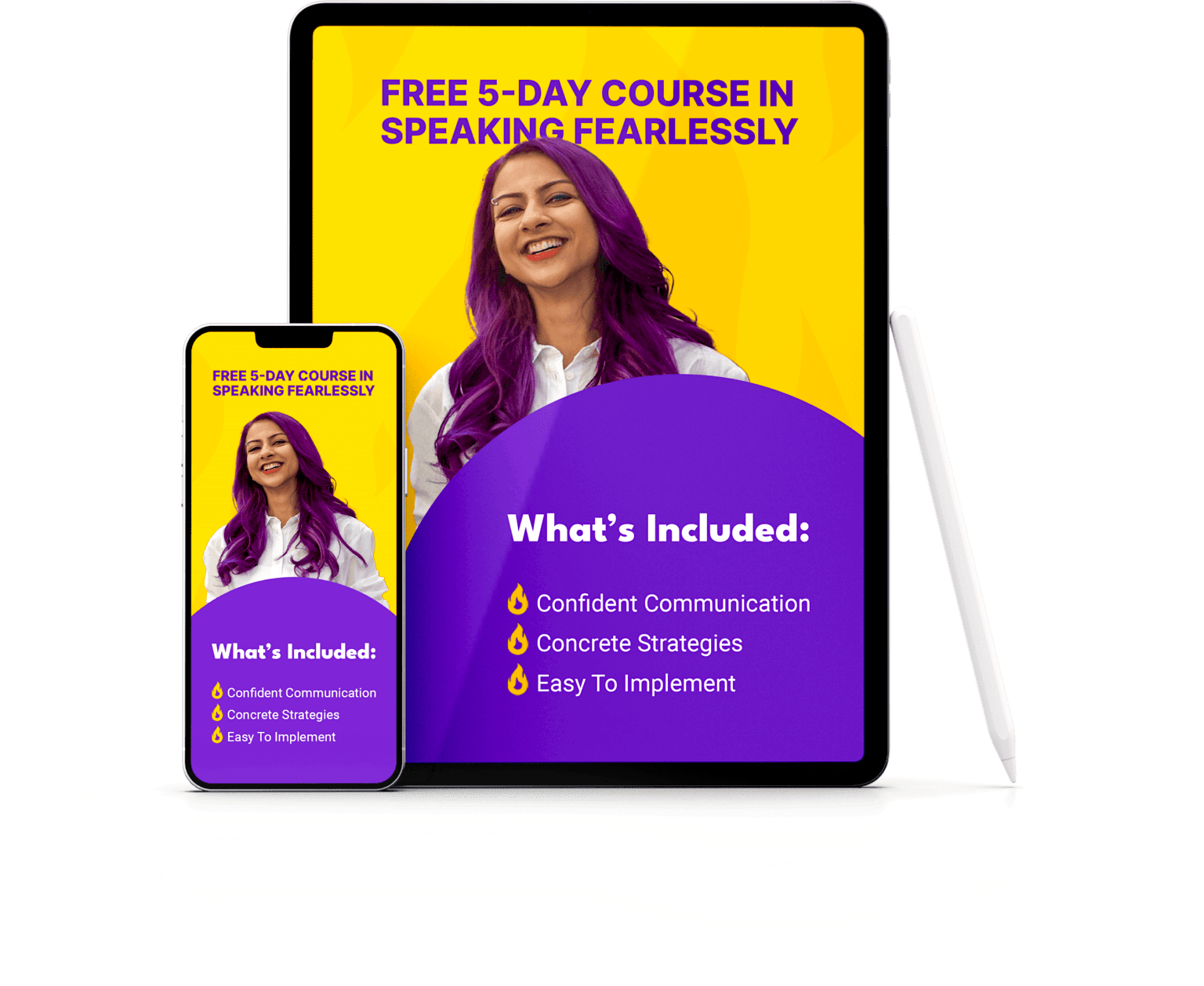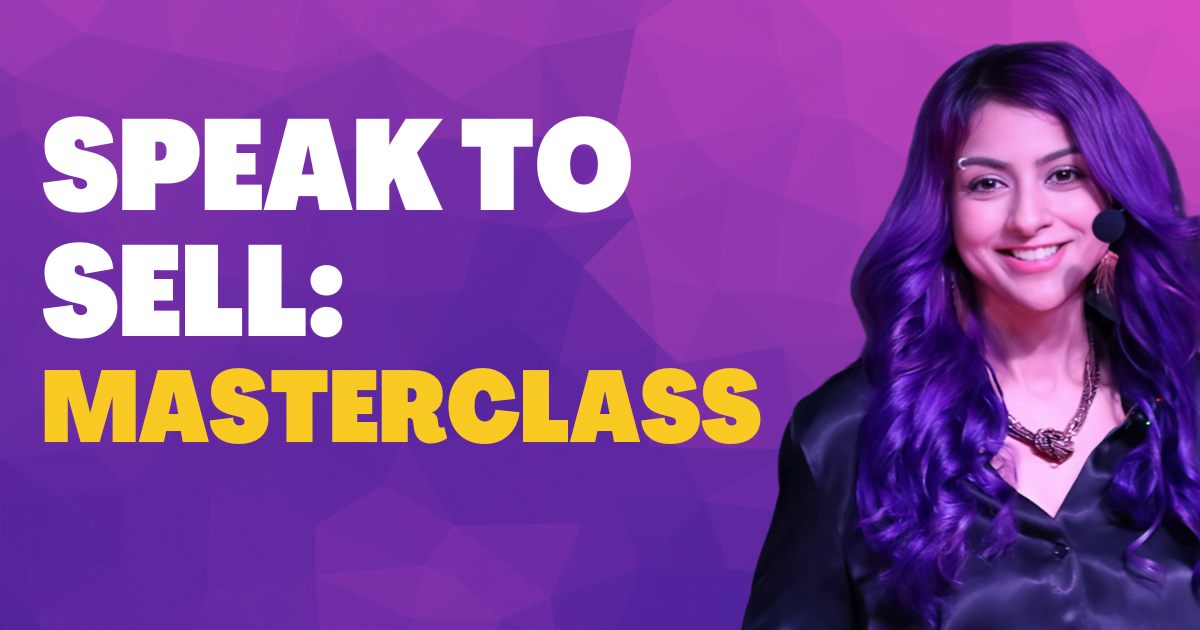So your marketing team has convinced you: you need to be more visible to grow your business. As an entrepreneur, your personal brand can’t just be based on text posts on LinkedIn. You have to come out from the shadows and show how you speak, think and appear.
Being on video, doing audio events and speaking at in-person events enriches your personal brand and makes you stand out. Your audience develops a much stronger and deeper relationship with you when they see you speak. I literally get on sales calls with clients who have watched my videos and they tell me that they feel like they’ve met me before. Someone who feels like you’re a familiar face is more likely to trust you and buy from you.
And the best part about being on podcasts and speaking at events is that you gain authority and credibility – you can tap into built-in and pre-existing audiences and add credibility by association with trusted names.
But you’re already convinced that you have to “get out there”. The big question is – how do you get on podcasts and speak at events? That’s exactly what I’ll show you in this step-by-step guide.
Table of Contents
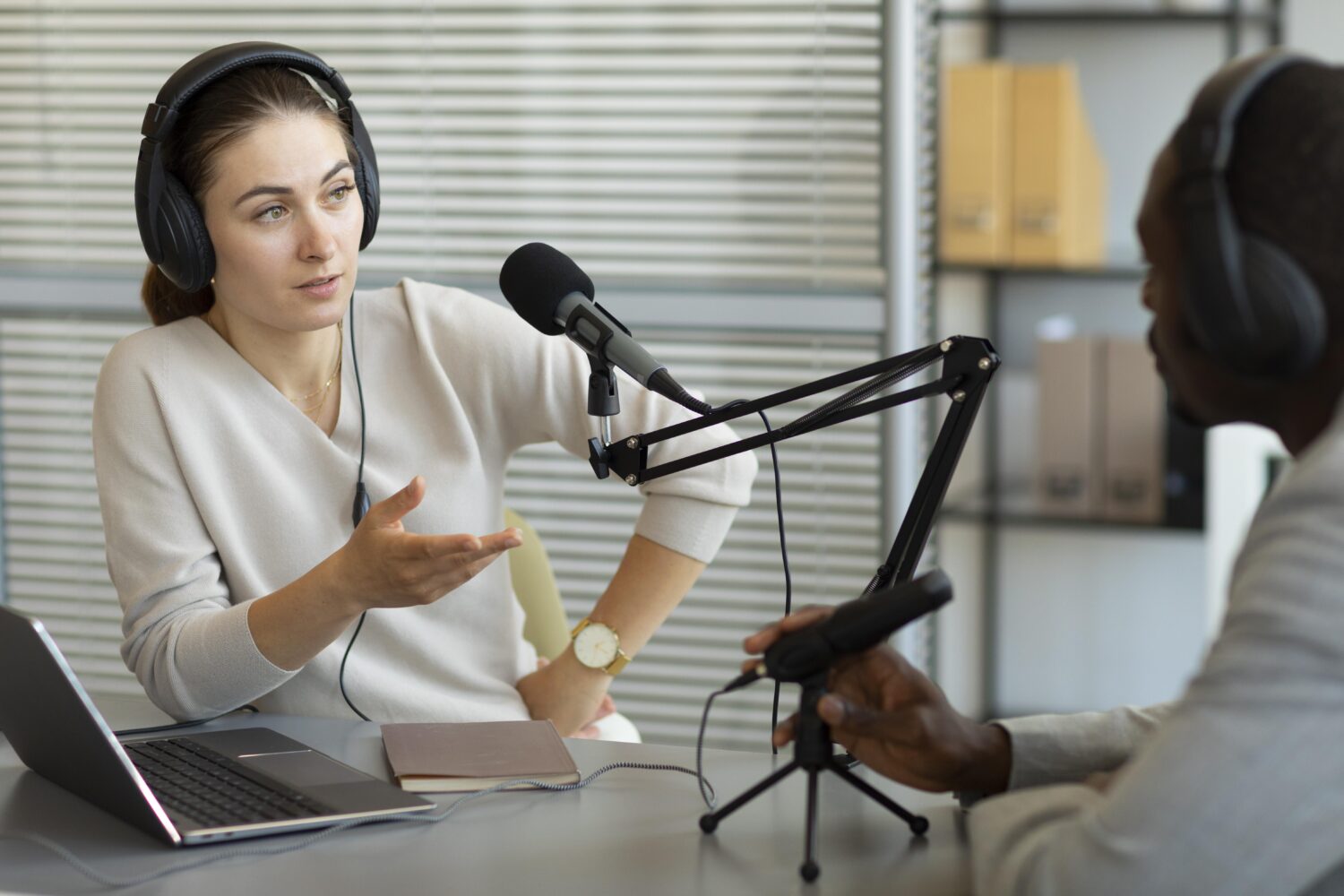
Finding speaking opportunities
Podcasts:
Here’s how not to find podcasts to be on: say yes to every random podcast that asks you to be on it.
With podcasts – it’s easy to think that maybe the more you do, the more of a chance you’ll get noticed. This is completely wrong because there are countless podcasts out there that have miniscule audiences. So being on one, ten, or twenty of them will still not even amount to a drop in the ocean.
Instead, become strategic about the podcast you pitch to be on. Here’s how:
- Google podcasts in your industry, or podcasts that your target audience is likely to listen to.
- You can also find top 100 podcasts in different categories and industries on Chartable.com.
- I’d recommend starting with pitching to mid-tier podcasts instead of the top 5 or 10 – as the top ones are always inundated with requests and might not respond to your pitch.
- However, if you haven’t been on any podcasts at all, I’d advise that you start with a few small ones to gain some experience.
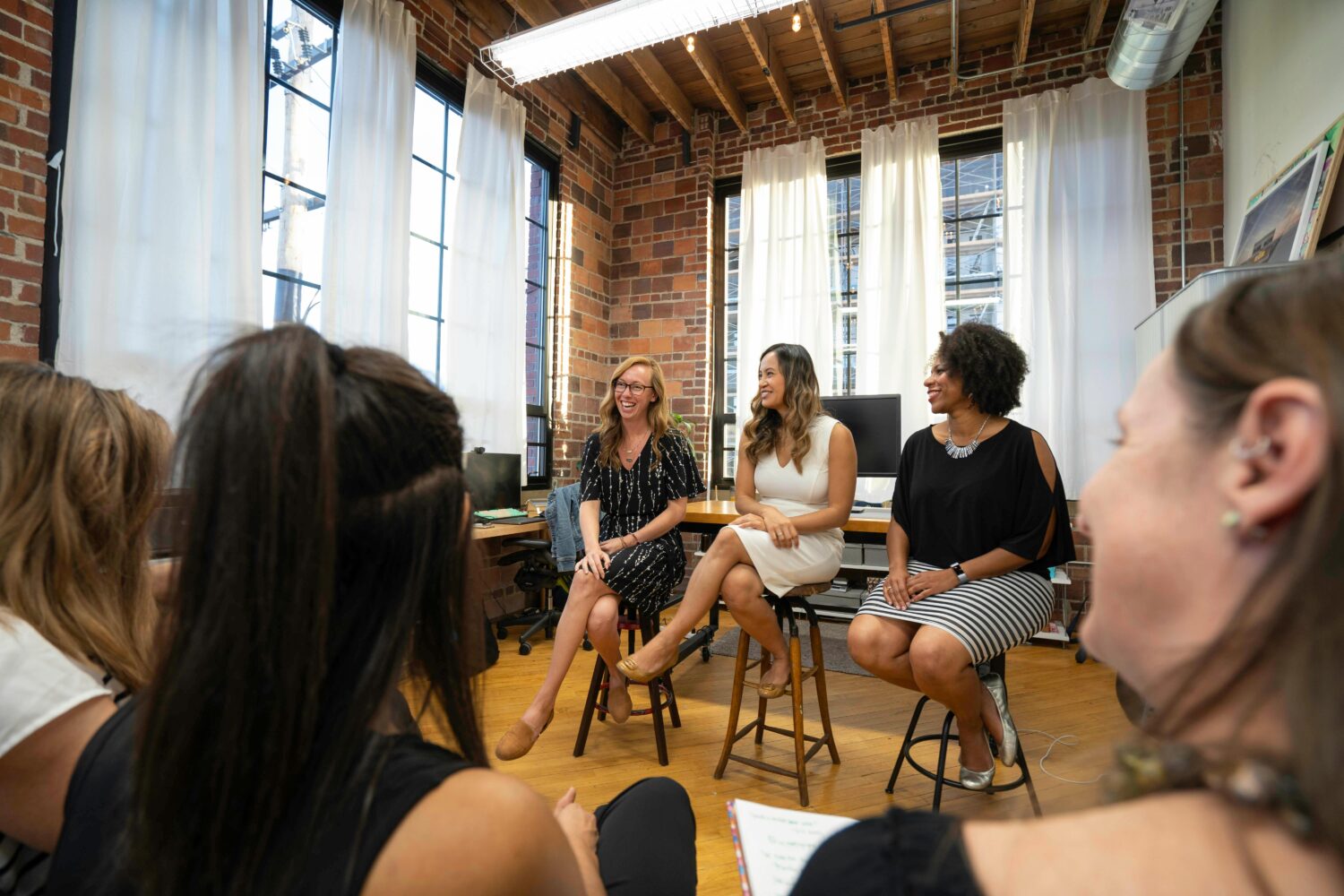
Events:
You can follow a similar process for finding events in your industry. There are three types of events:
- High profile events like TED, SXSW, Websummit etc. These events don’t pay speakers to speak – and neither do they normally charge speakers a fee to speak. They value their credibility by selecting the best speakers who add value for their audience.
- Medium profile and breakthrough events like RevGenius’ RevCon, Startup Grind, ProductCon London etc. These events are up and coming and have a lot of growth and networking potential. Some of these events pay speakers to speak at them, and some others might require a speaking fee. I’d recommend understanding exactly what participation in an event like this would entail before confirming.
- Low profile events like your neighborhood coffee shop storytelling event or free online workshops. I’d advise you to do a few of these if you’re feeling rusty or if you’re working on improving your skills as a speaker. But in the long run, doing a lot of these will not significantly impact your business growth.
Bonus tip: Don’t underestimate the power of your network. If you’re open to speaking opportunities, consider making a post on LinkedIn about it, or asking in your community if anyone knows of any relevant opportunities for you. You’d be surprised at how many opportunities come up when you openly declare that you’re looking for them.
Now that you have a potential list of podcasts and events to pitch to, let’s start pitching!

Image by cookie_studio on Freepik
How to get on your targeted podcast or event
Pitching to podcasts and events is all about showing how much value you bring to the table.
Other than the obvious step of submitting your pitch through the event website or podcast page, I advise against cold email pitches as much as possible. Unless you’re famous and can grab attention with the mere mention of your name, cold emails can be a complete waste of time. Instead, I recommend a relationship-based approach:
- To make the actual pitch, aim to reach out first to the hosts or organizers on a social platform like LinkedIn or Twitter.
- Once you find them, I’d advise you to start engaging with their content if they are active creators. This forms the basis for a relationship so that when you reach out to them, you can talk about which content you enjoyed (and they might recognize your name from your comments).
- When you start a relationship with them, you can let them know you’d be interested in being on their podcast or event and explain how you’d offer value to them through your expertise. This increases the chances of them considering you as a guest.
- You can also strengthen your case by sharing other podcasts and events you’ve been on (if any).
- If the organizer or host is not an active content creator on any platform (this is unusual), you can email them.
This approach is more likely to work vs sending cold emails and then sending multiple follow ups and hearing crickets. It does involve more of an investment of time – but yields much higher return on that time investment vs less time spent sending cold emails that never get answered.
Once you get an acceptance from a podcast or an event, the fun begins…
How to prepare for your next podcast
How to practice for a podcast
My first tip here is don’t over-rehease. A lot of people fall into the trap of getting questions ahead of time from the host and then writing out their responses to the questions in advance (and in some cases, even memorizing them!)
This approach doesn’t lend itself to you being a good podcast guest. The host is looking for energy, natural delivery and an easy rapport. Instead, they get a robotic, stiff, unnatural regurgitation of canned responses.
No fun.
Here’s how to prep instead:
- Do ask the host for as much info as possible on the episode they have in mind with you: from the topic to their key expectations. If they can share questions ahead of time, that’s great – I’ll teach you how to work with them in a more natural way. Do note that most high level podcasts don’t share questions ahead of time – and that’s a good thing!
- If you get questions, write key bullet points that you might want to cover. But don’t write full sentences – and definitely don’t try to memorize your responses. The reason why you’re writing out key phrases is so that you can take the time to organize your thoughts. This way, you aren’t thinking through your response for the first time when you’re doing the podcast.
- Whether you get questions ahead of time or not – I recommend doing the next few steps:
- Listen to at least 2 full episodes of the podcast before you go on it.
- Note how the host asks questions – and how they follow up. Is there attitude friendly? Hostile? Critical? Joking? Serious? This way you’ll already have an idea of what to expect and won’t be taken by surprise on the podcast recording day.
- Note the vibe and expectations that the host has: do they want you to be informal? Are they signaling that you can be high energy or is their energy more calm? Do they interrupt people?
- Bring stories:
- Note your 3-5 key messages that you want people to take away from your podcast.
- Now brainstorm 1-2 stories that match each of those key messages.
- Bring these stories to the podcast -the host will thank you for them and they will make more of an impact on your audience.
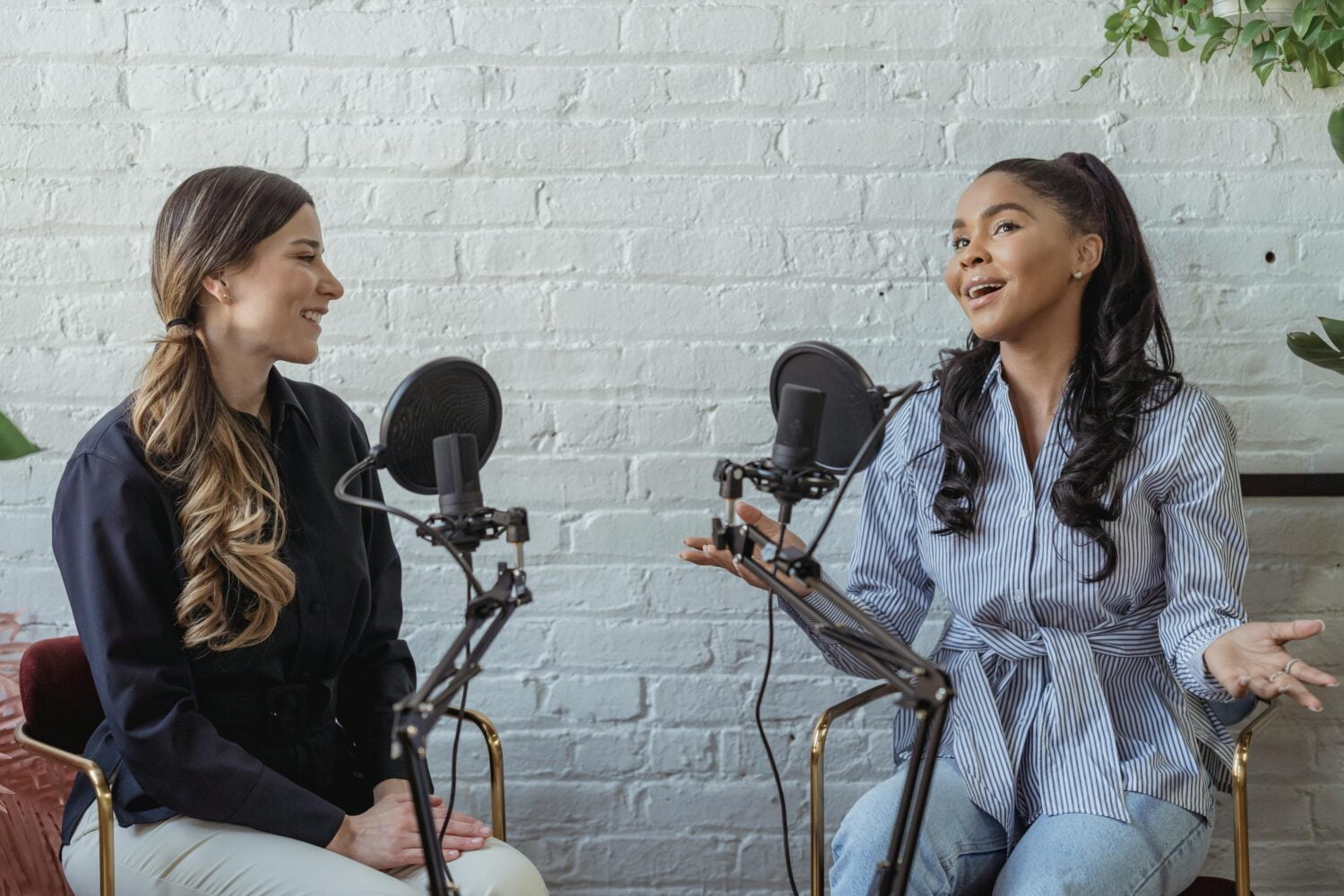
How to be a good podcast guest (so you land more opportunities in the future)
If you’re a good podcast guest, the audience will derive more benefit from your knowledge. Being a good guest means:
- Doing your research and homework.
- Giving concise and crisp responses.
- Using a lot of examples and stories.
- Being fully present without distractions.
- Coming with questions for the host yourself.
How to prepare for your next talk or presentation
Preparing your talk
Don’t make the mistake of only working on your Powerpoint slides – your talk is more than your slides! Instead, work on creating an experience. Here’s how:
- Do deep audience research – understand who they are, what they expect and what their current knowledge (and gaps) are.
- Create a talk outline.
- Decide which parts of your talk will be supported by slides, images, videos or interaction with the audience.
- Use storytelling to share key points – consider opening with a story to grab immediate attention.
- Ensure that you’re interacting with the audience every 5-7 minutes for a long talk or every 3-4 minutes for a shorter one (<20 minutes).
Once you talk is ready, it’s time to practice it!

Photo by David Bares
Practicing your talk
Aim to record every practice so that you can improve each time. This is exponentially more natural, effective and useful than rehearsing in front of a mirror. Here are other important factors to consider when practicing your talk or presentation:
- Simulate the same environment and parameters as you would experience on the day of the event itself. If it’s an in-person event that you’ll need to speak at while standing – then practice your talk standing up.
- Visualize your audience when you practice so that you can start speaking to them from the heart.
- A time management tip: when you practice, leave space for audience interaction (imagine that it’ll take a few minutes each time you ask the audience to engage). This will enable you to get a clearer idea of how long your talk will take (can be helpful for scenarios where you have a hard time limit for your talk).
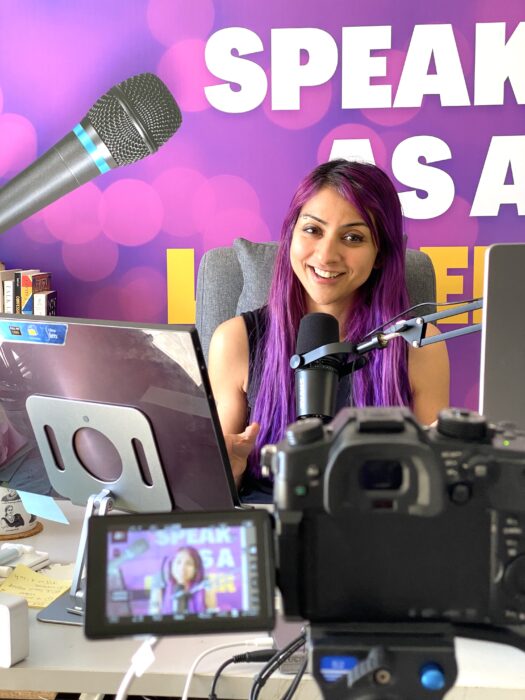
How to set up for your online podcast or online talk
You don’t need a fancy camera. But you do need one that does the job – shows a crisp and clear video feed of you. You don’t need an expensive mic. But you do need one that transmits your voice super clearly.
Tip: If you invest in your mic, you can use it for years to come without needing to upgrade.
Here is a setup that I recommend for optimized video and audio quality:
- Set up your webcam or DSLR/mirrorless cam at eye level. It should neither be too high nor too low.
- Work with natural lighting – sit with a window in front of you and not behind you.
- If you have a ring light, position it at a 45 degree angle so that the light doesn’t wash you out.
- Use an external mic – the built-in microphone on your computer is not good enough and picks up ambient noise. I recommend a good collar mic or a standalone mic.
- Test your entire setup beforehand using a similar or the same app that you’ll use for the podcast or event itself.
- Aim to arrive in the online podcast room/studio at least 3 minutes earlier.
You can get more help on your setup here.
Ensure that your family or housemates know that you’re doing a podcast or a live event so that they don’t start using vacuum cleaners or singing karaoke (true stories).
How to improve your speaking skills
Here’s the trickiest part about being on a podcast or an event – having strong speaking skills so that you can make an impact and stand out!
I go into a lot more detail on how to be a strong speaker in my article on XX, but here are the basics: You need to focus on your:
- Voice: control your pace, add emphasis and intonations for vocal variety and use pauses to achieve more impact.
- Energy: Bring your most energetic self and understand how to sustain energy throughout the podcast.
- Body language: Use gestures well and show expressiveness throughout your responses.
Here is a video guiding you through the 5 P’s that will help you control your voice:
What to do after your speaking opportunity
Other than sending a thank you to the host, ensure that you get your podcast or event recording so that you can leverage it across your socials.
Once you get recording, aim to create shorter clips from it – each clip should make one specific point.
In addition to this, review each recording to evaluate yourself on how you did on your speaking tools – your voice modulation, your energy and your body language. This way every single podcast will be an opportunity for you to improve.
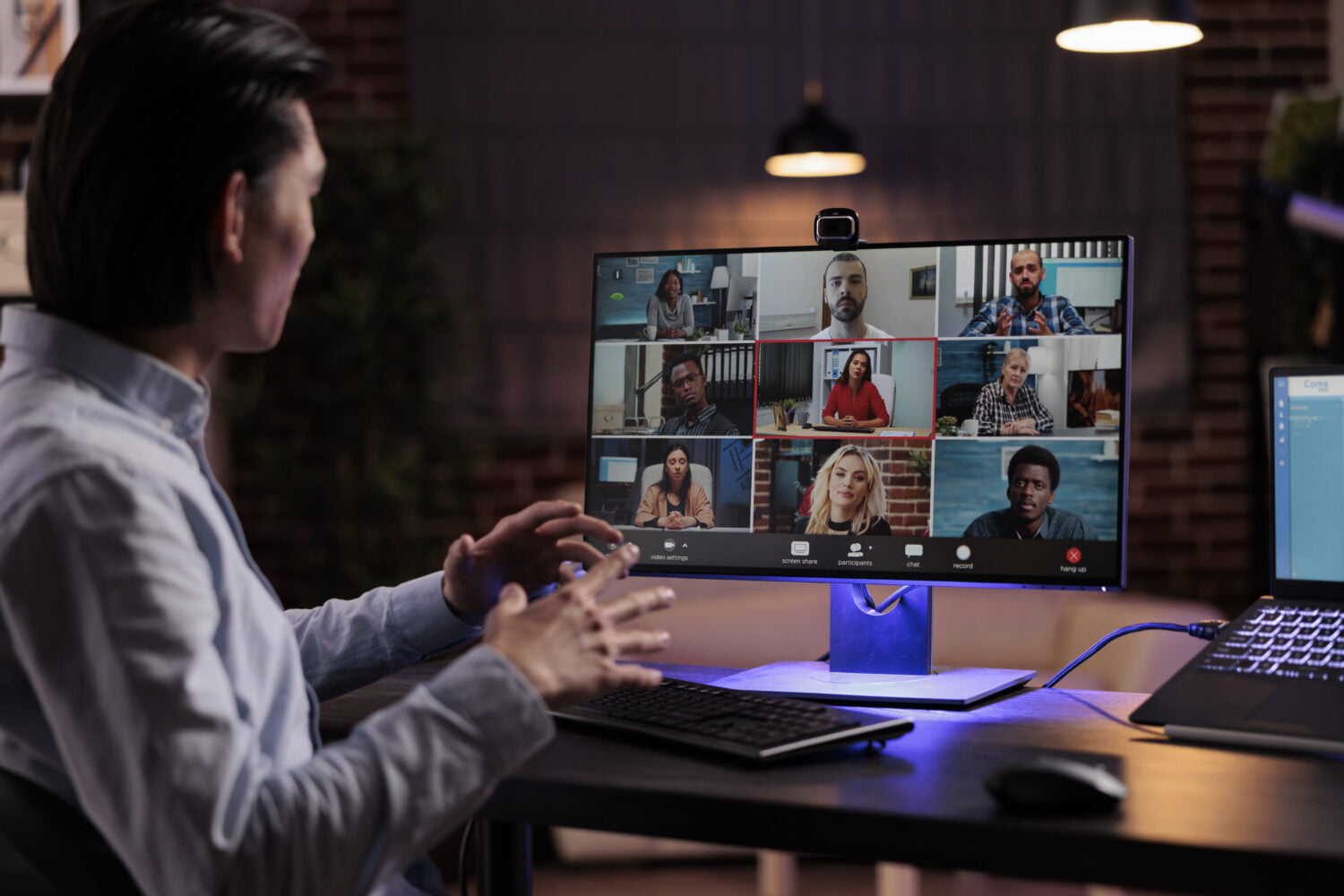
Image by DCStudio on Freepik
As an entrepreneur, if you’re more visible than your competition, you stand a higher chance of growing your business. Speaking on high level podcasts and big events level up your credibility, authority and expand your network.
Don’t let the complex process intimidate you – it’s absolutely possible to land the speaking opportunity of your dreams.
Want to make your public speaking dreams come true in 2024? Let’s talk.

